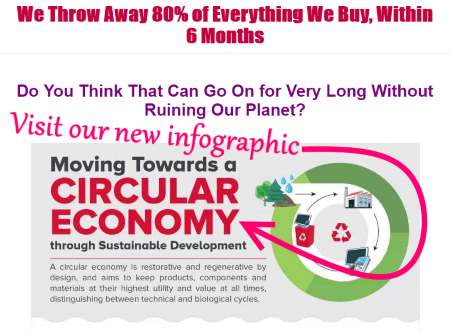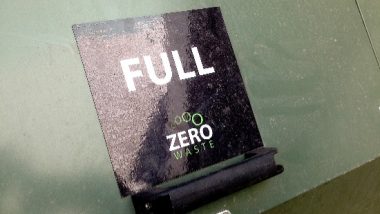The European Commission has approved an investment package of £222.7m from the EU budget to support Europe's transition to a circular economy.
The EU funding will spur additional investments leading to a total of £98.6m to be invested into 144 new projects in 23 Member States.
The support comes from the LIFE programme for the Environment and Climate Action. £323.5m will go to projects in the field of environment and resource efficiency, nature and biodiversity and environmental governance and information.
LIFE-funded projects use relatively little funding and with simple ideas to create profitable green businesses that deliver on the transition to a low-carbon and circular economy.
Of this 56 LIFE Environment & Resource Efficiency projects will mobilise £142.2m, of which the EU will provide £71.9m. These projects cover actions in five thematic areas: air, environment and health, resource efficiency, waste and water.
21 resource efficiency projects alone will mobilise £43.0m that will facilitate Europe's transition to a more circular economy, [in the hope that business adopts the circular economy].
Commissioner for the Environment, Maritime Affairs and Fisheries Karmenu Vella said:
“I am delighted to see that this year again our LIFE programme will support many innovative projects to address our common environmental challenges.”
via Report Identifies Regulatory Barriers To The Circular Economy
Contrast this with the recent announcement which follows, from the UK government, which shows a far greater focus on real results within the community (actual tonnages of re-usable items are given etc), and the outlook (rather than a gravy-train for speculative and experimental projects), encourages businesses to get involved:
Secretary Urges Organisations To Embrace Reuse & Repair Revolution

Cabinet Secretary for Climate Change, Environment and Land Reform, Roseanna Cunningham, has today called on businesses and social enterprises in Scotland to develop innovative ways of reusing and repairing products to create a more circular economy.
It's estimated that 150,000 tonnes of re-usable household items, including furniture, electricals and textiles, are sent to landfill in Scotland annually. Just reusing all of the washing machines, T-shirts and sofas would save over 80,000 tonnes of CO2e, Zero waste Scotland reports, and it would also generate over £30m for the Scottish economy in financial savings, sales and re-employment.
Businesses have the potential to make big savings from re-using and repairing equipment and looking at this business model. Innovative social enterprises are already benefiting, and there's endless opportunities for more collaborative and innovative ideas that tap into societies changing behaviour of re-using instead of disposing
The Cabinet Secretary urged businesses and social enterprises to work with Zero Waste Scotland to seize this opportunity in her keynote speech to the Community Resources Network Scotland's annual conference in Perth today.
Zero Waste Scotland's £18 million Circular Economy Investment Fund includes a specific focus on innovative re-use and repair projects which:
- Are collaborative in nature and of a sufficient scale to demonstrate to or inspire others.
- Implement new solutions to transform re-use and repair activities regionally or nationally.
- Test and deliver new services and models of operation.
Funding is available for small and medium sized enterprises operating in Scotland as part of a programme led by Zero Waste Scotland and supported through the European Regional Development Fund (ERDF) to accelerate progress towards a resource efficient circular economy.
The Environment Secretary Roseanna Cunningham said:
“Reuse and repair activities are among the strongest ways to keep valuable materials in circulation for as long as possible and support a more circular economy. Reusing and repairing products can prevent harmful greenhouse gas emissions, support local jobs and provide affordable, quality goods and services.”
“Scotland has a strong network of SMEs and social enterprises who can benefit from the opportunities of a circular economy, and I am delighted to announce that Zero Waste Scotland's Circular Economy Investment Fund is now open to bids for innovative reuse and repair projects.”
Iain Gulland, Chief Executive, Zero Waste Scotland said:
“The re-use and repair revolution has a vital role in an emerging circular economy. Our Circular Economy Investment Fund can help SMEs and social enterprises to develop innovative and transformative ideas that increase access to re-use and repair services and support the Scottish Government's Making Things Last strategy.”
“The continual move towards a circular economy can create opportunities for collaboration across the private, public and third sectors.” via Secretary Urges Organisations To Embrace Reuse & Repair Revolution
So, Scotland is on the EU funding gravy-train as well, obtaining unnecessary funding in the misguided idea that business adopts the circular economy only via the carrot, when they already have a high landfill tax which should be the only necessary driver.
UK Business Adopts the Circular Economy While EU Taxpayers Fund It – Conclusion
The biggest UK driver for the circular economy is the high landfill tax charges imposed at the same level throughout the UK. But, the EC has failed to understand this most basic fact.
Many EU countries receiving funding under the LIFE EU funding will be being poured into projects which can never hope to be financially profitable, and the reason for that is that their governments do not impose a landfill tax.
Without the financial incentive which a landfill tax (of above £75/tonne) provides, it will always be more expensive to use circular economy methods (minimise waste, reuse, and recycle technologies), than landfill. Only a small proportion of businesses will “go circular”, when it costs more.
In those countries the EU is throwing money away, by funding business initiatives to promote a circular economy. The circular economy will not happen without landfill tax.
This is just one more reason why the UK's decision to leave the EU is the correct one.
Some UK funding is via the ERDF and uses EU funds, but it is much better not to have to go to the ERDF to get the money. The same funds can be funnelled through national organisations after Brexit.
It is time that the people of the other EU states also woke-up to the wasteful excesses of the EU's undemocratic EC bureaucracy. Otherwise, while UK Business Adopts the Circular Economy and needs no subsidy EU Taxpayers will continue to fund it, at an unnecessary cost to all EU taxpayers.
 Click on the image above to see new our fact filled infographic picture!
Click on the image above to see new our fact filled infographic picture!




